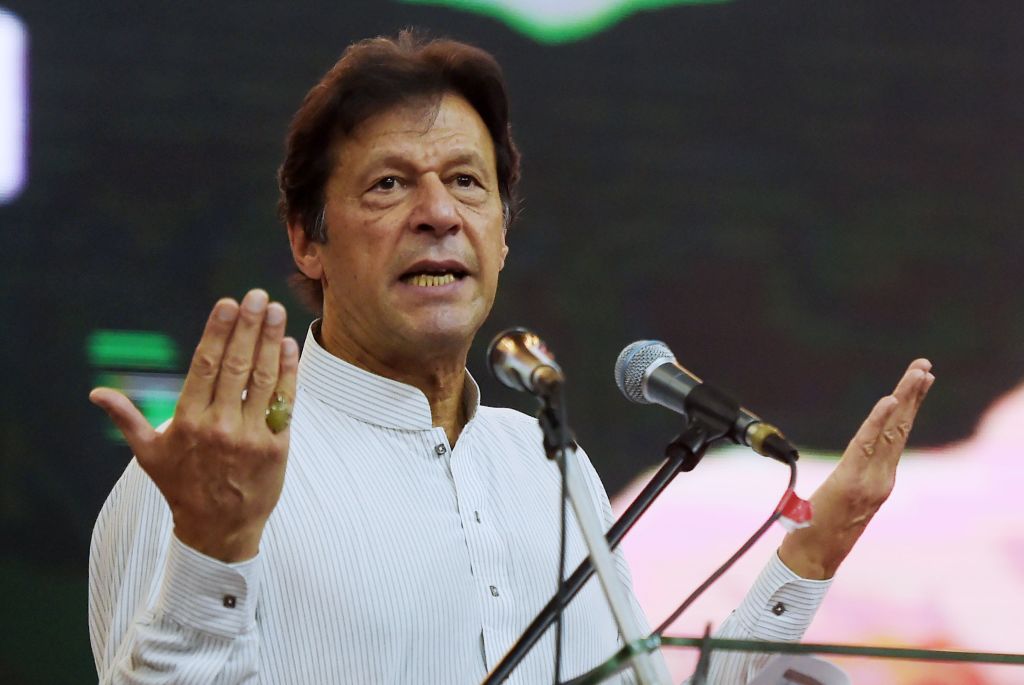To start with, this was no simple extension for a man appointed to Pakistan’s most powerful position. That would suggest Bajwa’s term of office had been increased by a limited period. In fact, general Bajwa was given a full second term. The official notification from the prime minister’s office makes this clear:
“Gen. Qamar Javed Bajwa is appointed Chief of Army Staff for another term of three years from the date of completion of current tenure”.
Yet in 2010, when one of general Bajwa’s predecessors, general Kayani, was given a similar ‘extension’ Imran Khan strongly and publicly criticised the decision. This is what he said at the time to Pakistan’s Express News Channel:
“No general or judge should get an extension because it will weaken the respective organisation…even during the time of the First and Second World Wars, nobody was given any extension. When you are breaking the law you destroy institutions…when you change the laws for an individual, it weakens the entire institution”.
These were arguments based on sound democratic and governance principles. They were hard to disagree with. So how does the justification for giving general Bajwa a second tenure compare with these arguments?
Monday’s statement from Khan’s office says: “The decision has been taken in view of the regional security environment”, which, presumably, means the deteriorating India-Pakistan situation and the disturbed and fragile environment in Afghanistan.
Yet in November 2016, when general Bajwa took over, the first cross-border surgical strikes by India had just happened, creating uncertainty and concern on the border, while Nawaz Sharif’s position as prime minister was weakening by the day.
In fact, it was widely believed his future depended on the army chief’s goodwill. But Sharif did not hesitate to appoint a new chief. Indeed, in 1998 he even dismissed one (general Karamat) for speaking out of turn. Khan has acted very differently. So, in his case, isn’t it tempting to conclude expediency has trumped principle?
This could be irresistible when you recall the role general Bajwa played in securing the prime ministership for Khan and the way he has, thereafter, been rewarded.
In 2018, Imran Khan’s electoral victory was substantially shaped by the army. First, were the efforts to hobble his principal rival Nawaz Sharif’s party, after Sharif himself had been politically debarred. Over one hundred of its candidates were ‘encouraged’ to switch loyalties or return their tickets. The BBC reported that nearly 17,000 of Sharif’s party members faced criminal cases for allegedly breaking unspecified election rules. Then the army facilitated permission for extremist organisations to contest the polls under new aliases. This was designed to split Sharif’s vote in his Punjab heartland.
Finally, on election day, the army’s presence was overwhelming. Over 370,000 troops were deployed both inside and outside polling stations. They were granted magistrate powers to hold on-the-spot trials of anyone accused of breaking laws and, thereafter, sentence them. It was a clear message to the Pakistani people to vote as the army would prefer.
The country’s Human Rights Commission chairman, Mehdi Hasan, called it a “blatant, aggressive and unabashed attempt to manipulate the outcome of the elections”.
After becoming prime minister, Khan knew it was time to return the favour. He first called general Bajwa “the most pro-democratic man we have ever seen”.
In June, he appointed the general to Pakistan’s National Development Council, a body designed to guide the country’s economic revival, where an army chief, one would assume, has no role to play.
Last month, the general accompanied Khan to Washington for critical talks with president Trump. It would seem the final payback happened on Monday.
How different all of this is to the image Khan presented of himself in the interview he gave me in November 2011 for India’s CNN-IBN channel. At the time general Kayani was Pakistan’s army chief and Khan was out to prove that if he ever became PM he would be boss.
Q. If Imran Khan becomes prime minister will you accept a subordinate status or will you have the courage and strength to challenge general Kayani and the Corp Commanders and insist on civilian supremacy?
If I am to implement my agenda, which means I take responsibility for everything that’s happening in Pakistan, it also means that the army is under me. It means the ISI can do nothing unless it reports to me. It means that the army budget is audited by a civilian set up.
Q. In a nutshell, what you’re saying is if Imran Khan becomes prime minister he will be general Kayani’s boss? He will be any and every Army Chief’s boss?
One hundred per cent. I have never ever, ever been controlled by anyone. If people give me a mandate to be prime minister I cannot be someone’s puppet.
Those were strong words but eight years ago there was no credible prospect of Khan becoming prime minister. Today he’s been in the job for 13 months. I guess you could say he’s learnt the importance of being flexible. Oscar Wilde would have approved.
Karan Thapar previously worked for the Times and London Weekend Television before he returned to India in 1990, where he is a current affairs television anchor






Comments